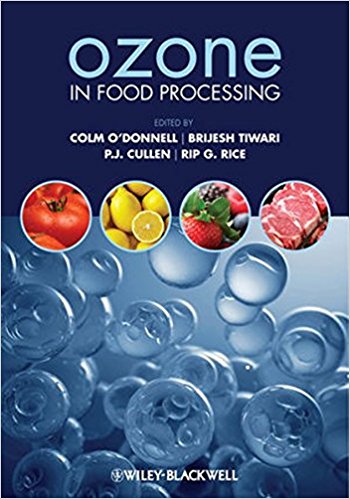|
Food Storage and Preservation |
Ozone is a powerful antimicrobial agent that has numerous potential applications in the food industry because of its significant advantages over traditional antimicrobial agents such as chlorine, potassium sorbates, etc. It is mainly by applying gaseous ozone or ozone-containing water that food products are treated to combat bacteria, fungi, viruses, protozoa, and bacterial and fungal spores. Efficacy against both Gram-positive and Gram-negative bacteria and fungi are reported as well as potential virucidal effects. As a disinfectant, ozone is more effective than chlorine and is active over a wider spectrum of microorganisms than chlorine and other disinfectants. It usually reacts faster than chlorine with many organic materials and produces fewer decomposition products. Excess ozone auto-decomposes rapidly to produce oxygen, and thus it leaves no residues in food. Such advantages make ozone an attractive processing technology for the food industry. Ozone was affirmed as Generally Recognized as Safe (GRAS) for use in food processing in 1997, when used in accordance with good manufacturing practices. In June, 2001, the US FDA approved ozone as an antimicrobial direct food additive in response to a food additive petition submitted by the Electric Power Research Institute. Current commercial applications of ozone in the food industry include fruit and vegetable processing and storage, seafood processing and ice-making. Two keys to success with ozone are (1) ensuring that ozone comes in contact with the microorganisms in question, and (2) applying sufficient ozone to produce the benefits desired without applying excessive ozone, which might damage the food product being treated. In Japan, where food scientists have been studying and applying ozone in their food industries for over 25 years, ozone is in commercial use in food processing plants, in food transportation vehicles, in food distribution centers, in food markets, and even in private home food storage (refrigerators) and devices for washing purchased fresh foods. |

